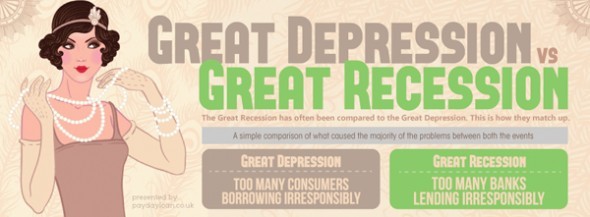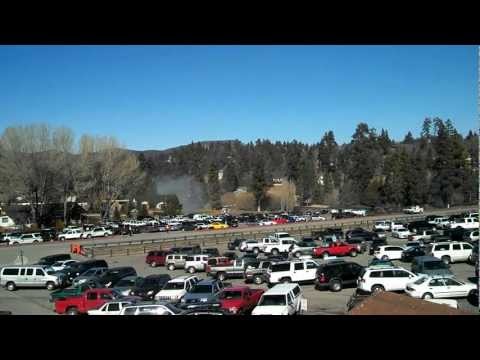How do you define recession and depression in today’s terms Big Bear Grizzly Big Bear Valley News
Post on: 4 Июль, 2015 No Comment

Recessions and depressions don’t just describe a hairline or state of mind—they can describe the state of the economy, too. So what does all this economic mumbo-jumbo mean?
John Husing, an economist who has studied the economy of the Inland Empire for 44 years, says depression doesn’t have a true definition. “A depression is really just a severe recession,” Husing says. “But a depression is in the eyes of the beholder. The saying goes, ‘If a lot of people are unemployed, it’s a recession. If you’re unemployed, it’s a depression.’”
“A recession occurs when the economy is performing at significantly less than capacity,” he says. The main barometer used to gauge a recession is unemployment.
According to the U.S. Department of Labor’s Bureau of Labor Statistics, the national unemployment rate as of Jan. 9 is 7.2 percent. “If that number gets to 15 percent, we’re in a depression,” Husing says. “I really don’t see that happening.”
But Husing says the picture is much more bleak in the Inland Empire, which consists of Riverside and San Bernardino counties. “Right now the (Inland Empire’s) unemployment rate is at 10.1 percent,” Husing says. “Unfortunately this recession hit our strength. Everything dealing with construction, it’s all slowing down or stopping.”
At 10.1 percent, the Inland Empire’s unemployment rate is second only to the Detroit metropolitan area. The Inland Empire was tied with the Detroit metropolitan area at 9.5 percent unemployment in November 2008, but Detroit’s unemployment rate is now 10.6 percent.
According to the Big Bear Chamber of Commerce, California’s Employment Development Department says Big Bear Valley’s unemployment rate is 4.5 percent. Husing predicts the unemployment rate in the Inland Empire will reach a peak of 12 to 13 percent, while the national rate won’t top 10 percent.
“I agree 100 percent with (Husing),” says Brad Kemp, director of regional research for Los-Angeles based Beacon Economics. “We projected last fall that the Inland Empire (in the fourth quarter of 2009) would reach a peak unemployment rate of 12.4 percent.”
Kemp says he doesn’t see a depression on the horizon either. “(California) will probably reach a peak unemployment of around 10 percent,” he says. “And the nation, it won’t get near double digits. Certainly there will be no depression.”
Husing adds that the real estate market is a key component of the Inland Empire’s economic struggles. “If you’re in the construction industry, you are in a serious depression,” he says. “The country is in a serious recession.”

Kemp says the housing slump in the Inland Empire is a result of bad lending. “There were some absolutely ridiculous loans being handed out,” he says. “And now all the failures of those mortgages, we’re seeing the ramifications. And it’s being exacerbated by the loss of jobs.”
To Kemp, a balance of wages and home prices must be reached. “Affordability is a huge issue,” he says. “In the ’60s, if someone earning a median wage bought a median-priced home, 25 percent of their income went to maintenance on the home. In the ’70s, that number was around (33 percent). In 2006, in some areas of California, it was 73 percent. Those kind of market conditions aren’t sustainable. Now you’re seeing the market trying to get back to some kind of equilibrium.”
Thankfully, recovery is coming, Kemp says. “You definitely want to watch for the positives,” he says. “That way we can get on the road to recovery. Luckily, the new administration knows that we need to strike early and fast, and that puts us in a position to make the positive shocks necessary to turn this around.”
Husing says the experience gained from the Great Depression will prevent a recurrence of that kind of economic strife. “We know what our mistakes are and what they were then,” Husing says. “That’s why you see (Federal Reserve chairman Ben) Bernanke out there doing everything he can and you see the stimulus packages. A large government deficit is what got us out of the Great Depression. But something to watch for is what the Obama administration does for mortgage relief. That’s when California will really start to get back on track.”
“We would advise consumers to spend, but do it smartly,” Kemp says. “And people need to remember, these downturns are cyclical. People have been surprised by it, but this recession isn’t a surprise.”
Contact reporter Brett Croxton at 909-866-3456, ext. 134 or by e-mail at bcroxton.grizzly@gmail.com .














